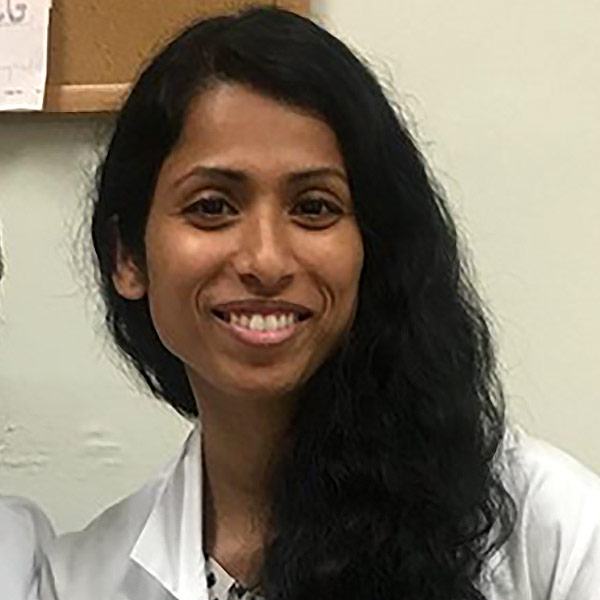Feature | Why I Chose Preventive Cardiology

On Valentine’s Day 1994, I was 5 years old and in art class, carefully crafting a Valentine’s Day card for my grandparents. I remember gluing a white lace heart onto a red sheet of construction paper and being excited to share my masterpiece. My grandfather picked me up from the bus stop that afternoon.
Once we got home, he held his chest and reported pain. He was a stoic man of few words and even fewer complaints, so it was obvious to even my young eyes that he was in distress. Emergency medical services arrived to take him to the hospital, but he tragically died in route from a massive myocardial infarction at the age of 61.
While I cannot recall if my grandfather’s early death was the impetus for my longstanding aspiration to become a cardiologist, it undoubtedly influenced my interest in preventive cardiology. To this day, I wonder if more guidance on risk factor and lifestyle modifications could have delayed or prevented his untimely demise.
There is no doubt that astonishing cardiovascular advancements have occurred in the last several decades, from improved stents to minimally invasive valvular procedures to ventricular assist devices to heart transplantation. While this progress should be supported, there should be just as much — if not more — emphasis on preventing an individual from getting to the point that such therapies are needed.
Primordial, primary and secondary risk factor reduction — through aggressive lifestyle changes and pharmacologic therapies where appropriate — can allow patients to never experience, or experience to a lesser extent, symptoms and adverse events that are either life-ending or reduce quality of life.
I plan to work as a preventive cardiologist because I believe in the importance of prioritizing global health risk reduction and cardiovascular health promotion. I also find it more intuitive to treat people by minimizing exposure to risk factors that lead to frightening symptoms; expensive and complicated medical treatments; and high physical, emotional, and financial burden to patients and their families.
With the tools acquired from our medical training, we can move from a reactive “wait and watch” viewpoint to a proactive “act and prevent” philosophy that better embodies our initial promise to “do no harm.”

While I will never have the opportunity to give my grandfather his Valentine’s Day card, I find comfort in the knowledge that another grandchild may have that chance because of the collaborative efforts of preventive cardiologists who screen, treat and educate their patients.
I have often been asked the question, “why prevention?” especially since you are not able to directly see the outcomes of your work like you can when you put a stent in a blocked coronary artery or perform an ablation to terminate an arrhythmia.
I often respond with an airplane analogy — one never hopes for a bumpy flight with inclement weather, malfunctioning parts and risky landings. Years of endless dedication to aviation safety have led to air travel being extremely safe. A peaceful flight with minimal to no issues is the best type. A peaceful life with minimal to no health issues is the best type.
While this is my particular field of interest, all aspects of cardiology are necessary and productive in combatting cardiac pathologies that are responsible for high morbidity and mortality rates around the world. I encourage any woman who has an interest in human biology and enjoys working with people to consider a medical career in cardiology.
Cardiology is an ever-advancing arena that requires lifelong perseverance, but it also teaches us humility, shows us the strength of the human body, and, ultimately, gives us back so much more.

This article was authored by Tina Varghese, MD, Fellow in Training at the Emory University School of Medicine in Atlanta, GA.
This article is part of the ACC WIC Section's #ChooseCardiology series, where women in residency, fellowship and early career are encouraged to share why they would choose cardiology again.

